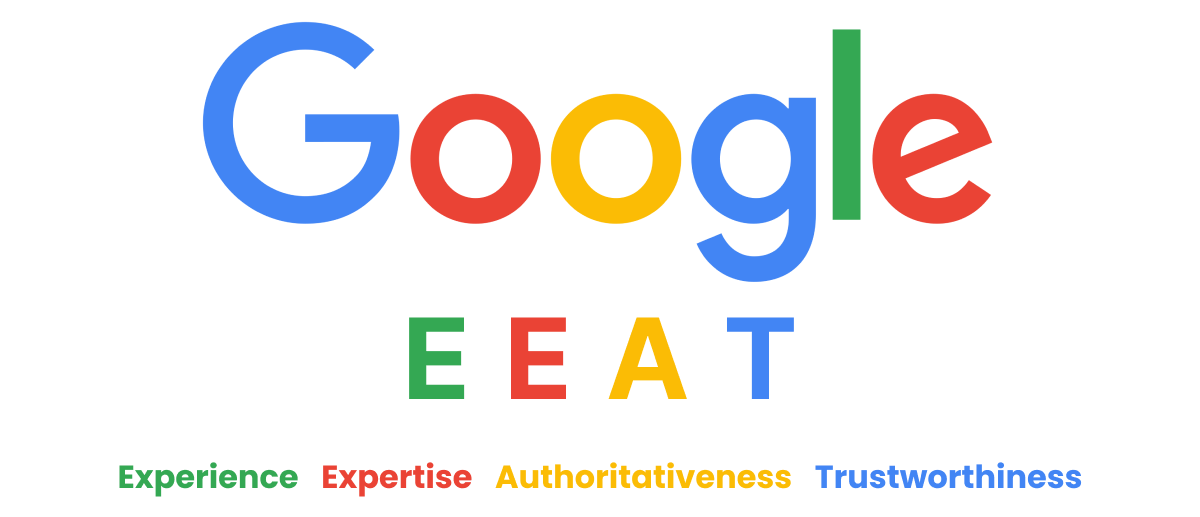In the evolving digital marketing landscape, Google's emphasis on content quality has become a decisive factor in search rankings. The latest update to Google's Search Quality Rater Guidelines has introduced a new dimension to content assessment: E-E-A-T—Experience, Expertise, Authoritativeness, and Trustworthiness. This framework offers valuable insights into how Google evaluates content and provides a roadmap for brands aiming to achieve online visibility.
What is E-E-A-T?
E-E-A-T is an evolution of the earlier E-A-T model. While expertise, authoritativeness, and trustworthiness have been pillars of Google’s content evaluation, adding "Experience" highlights the growing importance of first-hand, real-world knowledge. This is especially critical for subjects like health, finance, or safety, where misinformation can have significant consequences.
Experience adds a layer of authenticity, ensuring brand content is positioned to inform users. For instance, a product review written by someone who has used the product will typically hold more weight than paying an influencer to advertise the product without familiarity.
Trust remains the cornerstone of E-E-A-T. Google emphasizes that without trust, even content with solid experience, expertise, or authority will be considered low-quality. This makes transparency, reliability, and ethical practices essential for content creation.
Why E-E-A-T Matters for Your Online Presence
While not a direct ranking factor, E-E-A-T influences how Google's algorithms evaluate and rank content. Google’s algorithms incorporate signals that align with E-E-A-T principles, rewarding websites that provide value and align with user expectations. By following E-E-A-T guidelines, brands can enhance their content’s quality, improving their chances of ranking.
Your company can demonstrate E-E-A-T through strategies like showcasing author credentials, citing reputable sources, publishing detailed and accurate research, and emphasizing transparency in practices. Google values consistency and reputation, so building a trustworthy online presence over time is critical.
The Importance of First-Hand Experience
Google’s emphasis on experience reflects users' preference for authentic and informed content. Whether it's travel guides, product reviews, or technical tutorials, first-hand knowledge adds credibility and relevance. The Search Quality Rater Guidelines explicitly favor content created by individuals with direct experience, as this builds trust and authority.
For example, an article about clavicle fractures: causes, symptoms, and treatment options written by an experienced physician would be more trustworthy than one authored by someone with no relevant background. See how we helped an orthopedic practice increase its user traffic by 326%. Similarly, social media posts or forums where users share real-world experiences can be classified as high-quality content under Google’s framework. We used this know-how to feature genuine student content for Raritan Vallee Community College (RVCC).
AI-Generated Content and E-E-A-T
The rise of AI tools like ChatGPT, Claude AI, and Google Gemini has raised questions about even more content flooding the internet and how this AI-generated information fits within the E-E-A-T framework. While AI can assist in drafting content, Google cautions against relying solely on AI-generated material, especially for topics requiring expertise or first-hand experience.
Human experts should review, edit, and supplement AI content to meet E-E-A-T criteria, creating content that is valuable to readers and not just repeating what’s already out on the internet—ask yourself, “What do I have to add?” This ensures accuracy, originality, and relevance, aligning with Google’s expectations for high-quality content. This is a significant rule of thumb for future ai-search ranking.
Applying E-E-A-T Strategies for SEO Success
To optimize your website for E-E-A-T, focus on these fundamental principles:
Demonstrating First-Hand Experience
Highlight direct, first-hand experience in your content. Use your company’s long-standing author bios and personal anecdotes where relevant.
Share personal stories and specific examples
Include detailed, practical insights
Use authentic language that reflects real-world understanding
Showcase credentials and professional background
Building Expertise
Ensure your content reflects subject matter depth and is backed by credible sources.
Publish in-depth, well-researched content
Cite credible sources and studies
Develop comprehensive guides and resources for users
Consistently update your content with current information
Establishing Authoritativeness
Build your brand’s reputation by earning recognition within your industry through collaborations, citations, and mentions by other reputable sites.
Develop a strong business profile
Earn mentions and backlinks from other reputable sites and users
Participate in industry discussions and conferences
Showcase professional achievements and recognition
Enhancing Trustworthiness
Be transparent about your content's origins, maintain ethical practices, and provide clear contact information.
Display privacy policies and terms of service
Maintain transparent author and company information
Provide clear contact details
Manage online reputation proactively
A Concept, Not a Checklist
E-E-A-T should be seen as something other than a box-ticking exercise but as a conceptual approach to content creation. The framework encourages brands to produce content that genuinely serves users, aligns with their queries, and provides valuable insights.
By aligning your website and content strategies with E-E-A-T, you’ll improve your SEO outcomes and build long-term trust with your audience—ensuring success in a competitive digital environment. Remember: delivering value to your users is the ultimate goal.
For guidance on improving your Google rankings, schedule a consultation with our team of digital marketing experts. Or say hello@edesigninteractive.com.